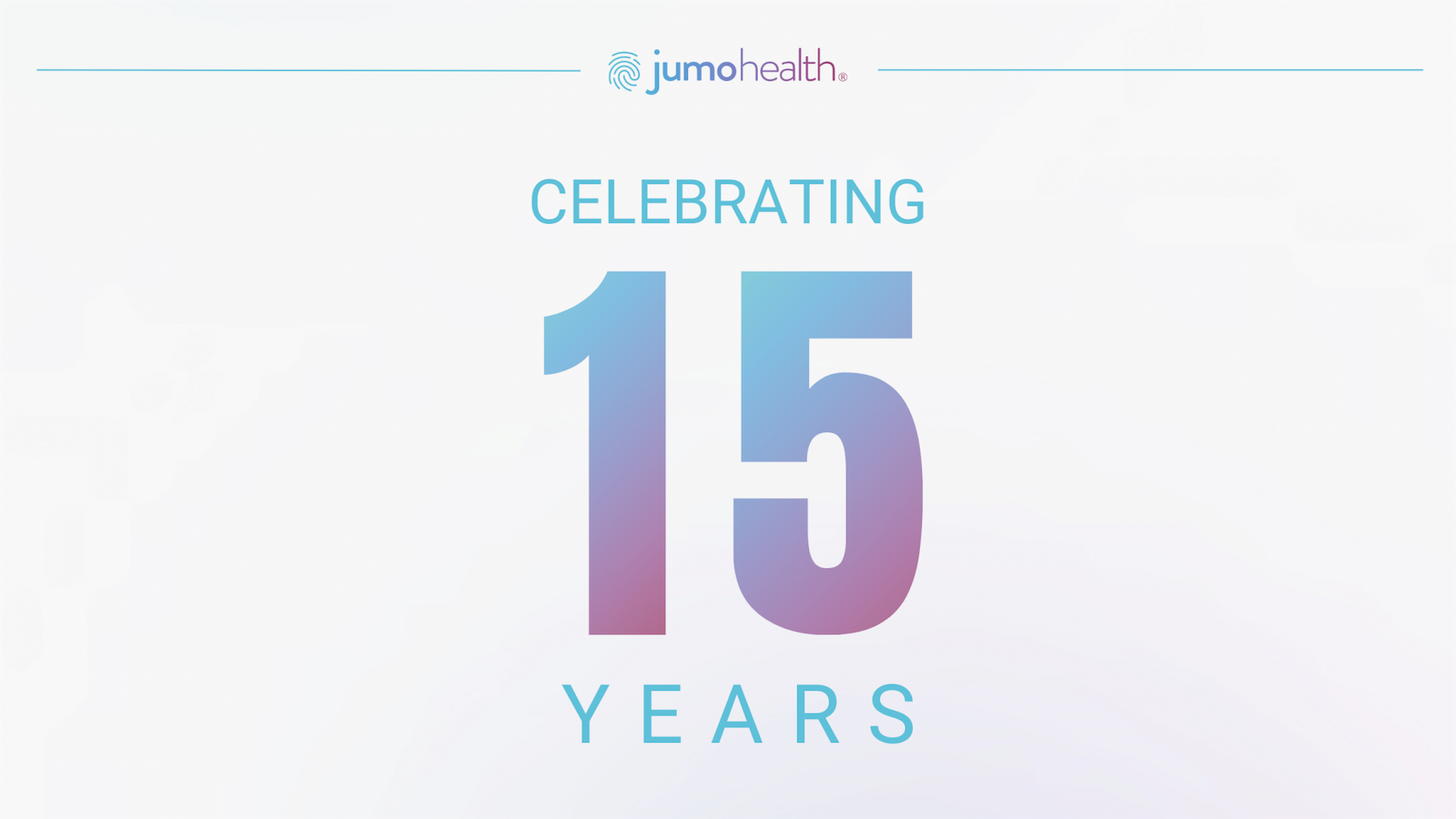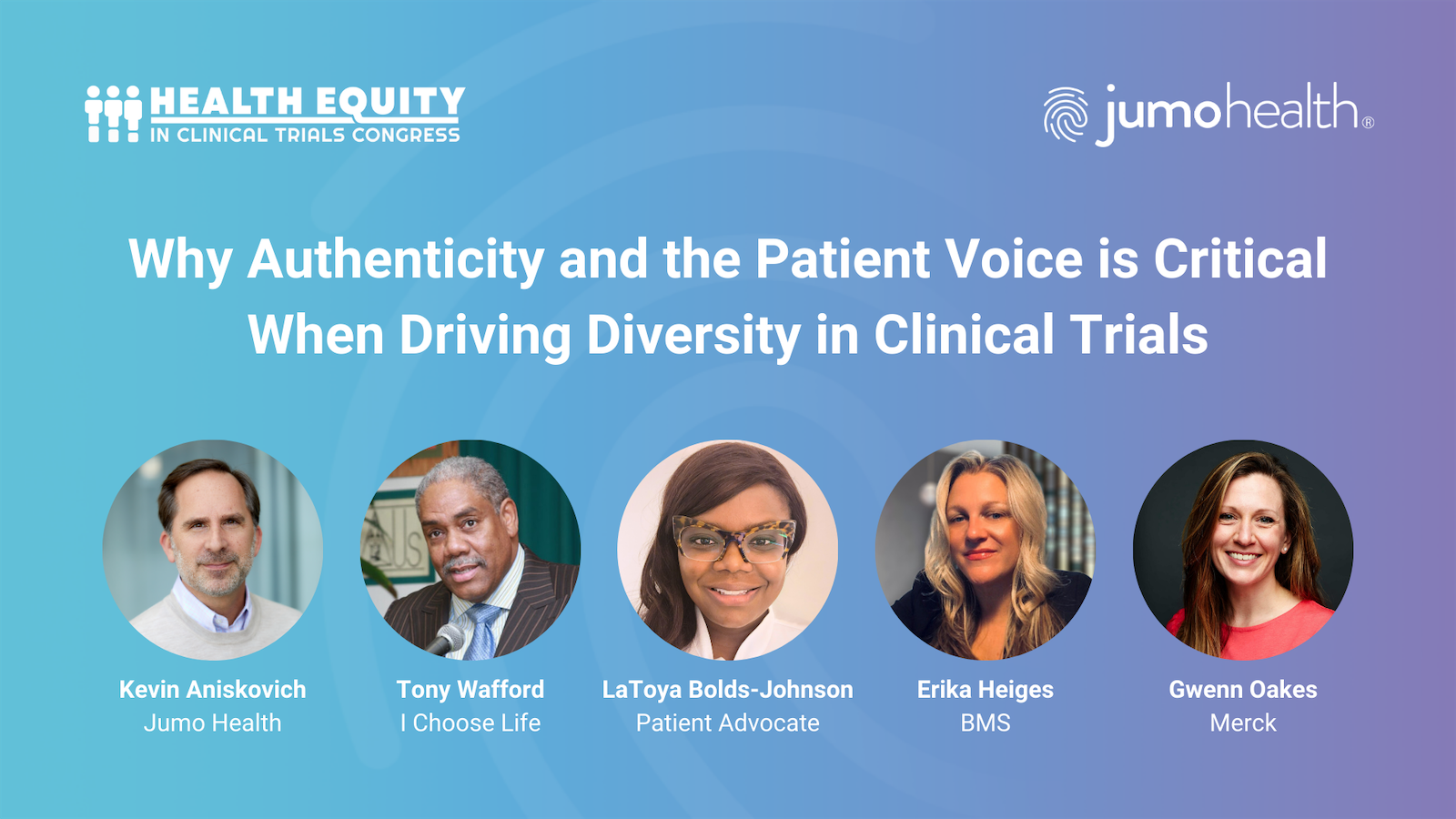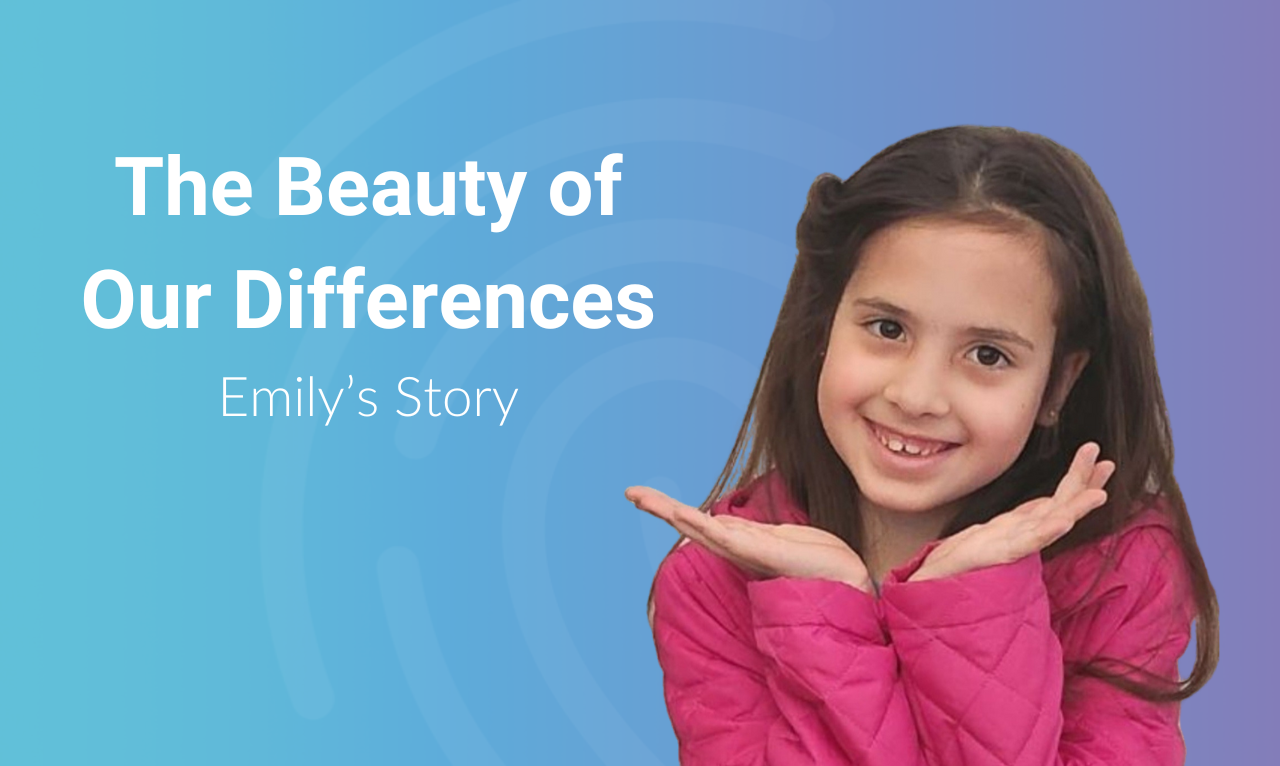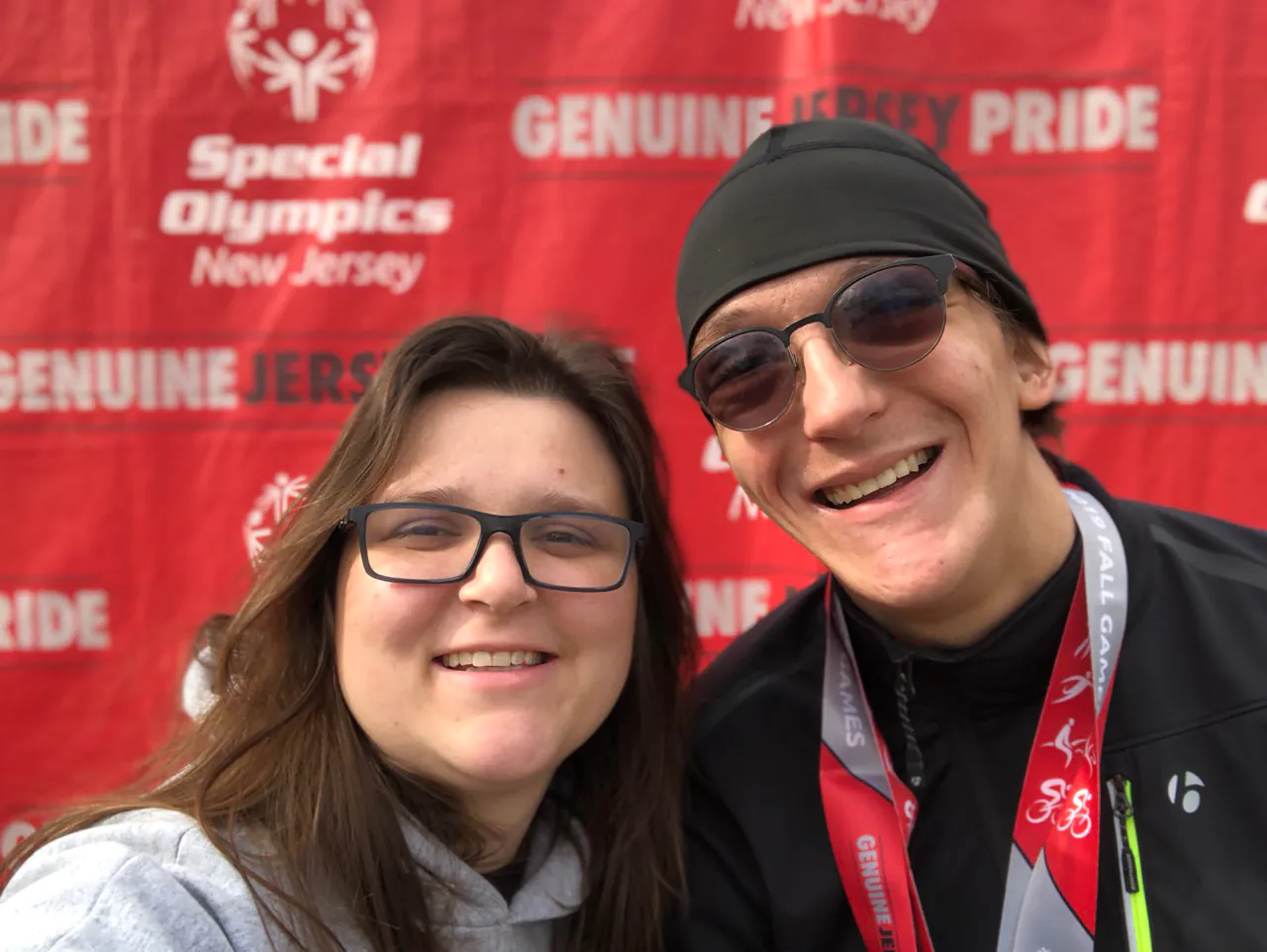Jumo Health Continues to Celebrate Youth Leaders as They Advocate for Patients and Their Families
New Haven, CT (June 26, 2024) — Jumo Health, a global provider of age-appropriate, culturally sensitive medical education resources, today announced its ongoing commitment to the International Children’s Advisory Network (iCAN) as the Presenting Sponsor of its 2024 Research and Advocacy Summit, held in Bari, Italy from July 14-20. For the last 10 years, iCAN has provided a voice for children and their families across the globe.
“Our commitment to iCAN and the children and families they support goes well beyond a week in July each year,” shared Kevin Aniskovich, President and CEO of Jumo Health and a member of the iCAN Advisory Board. “Supporting pediatric advocacy is central to Jumo Health’s corporate mission to elevate health literacy and ensure health equity. The annual iCAN Summit serves as a gathering for participants from more than 30 countries to share, learn, and inspire others with their stories of hope,” continued Aniskovich. “Each year we arrive excited to learn and leave ready to bring their ideas to life,” concluded Aniskovich.
Capitalizing on the unique knowledge base it created to address the unmet needs of pediatric patients, Jumo Health has since applied that knowledge to serve patients of all ages, across all cultures, in multiple languages. This skill set has allowed the company to remain committed to serving the entire care circle by developing relatable resources that reflect real patient experiences.
At this year’s iCAN Summit, Jumo Health will lead two interactive sessions:
The Power of Authentic Storytelling
In this interactive session, leaders from Jumo Health will explain the impact that real patient stories can have and discuss different mediums that attendees can use to share their experiences with others. This session will provide attendees with the opportunity to bring their stories to life in whatever form they choose, including writing, drawing, and video.
Understanding Informed Consent/Assent: A Focus Group
Jumo Health will discuss the critical components of informed consent forms and why it is important to make the information easy to understand. Then, the session will break out into smaller groups to review a real informed consent form in three different formats to test how well information is retained when presented in different ways.
“It continues to be an honor partnering with Jumo Health in our shared mission of Empowering Pediatric Patients Worldwide, and we are proud to have them as our Presenting Sponsor for the 2024 iCAN Research and Advocacy Summit” said Leanne West, iCAN President and Chief Engineer, Pediatric Technologies at Georgia Tech. “Communication and creativity go hand in hand, and iCAN’s global network of youth members benefits greatly from the work Jumo Health is doing in supporting health literacy for kids of all ages and conditions.”
The annual iCAN Summit provides an opportunity for its youth members to meet in person with those dedicated to improving pediatric health care, including entrepreneurs, researchers, scientists, and physicians from around the world. In addition to learning more about medical and scientific advances, participants will have the opportunity to interact and share their own stories and experiences navigating the health care system.
“At last year’s iCAN summit, I had an amazing time exploring the captivating coasts and numerous attractions of San Diego while also contributing my voice to pediatric healthcare and research as a patient with a rare disease. It was an incredible opportunity to discuss my passions for rare disease advocacy with experts and professionals from various research organizations,” reflected Meghan Herrington, the iCAN Youth Council Chair and a rising freshman at Brown University.
Additional information about the 2024 iCAN Summit is available at www.icanresearch.org/2024-summit
About the International Children’s Advisory Network (iCAN)
iCAN is a global network of KIDS chapters dedicated to sharing the voices of “Every Kid, Everywhere” to foster a greater global understanding of the needs of pediatric patients and to ensure that the perspectives of children and families are integrated into pediatric healthcare discussions. Since its inception, the annual iCAN Research & Advocacy Summit and other iCAN programs have provided young people with the opportunity to collaborate with leading healthcare professionals and industry to improve the health and well-being of all children, especially those with chronic, rare, and complex diseases. For further information, visit www.icanresearch.org.
“LaToya’s Story” Sheds Light on the Power of Personal Advocacy and the Importance of Health Equity, Wins Two Telly Awards
NEW HAVEN, CT (June 10, 2024) – Jumo Health, a global provider of age-appropriate, culturally relevant medical education resources, has produced a live-action video addressing health equity in clinical trials that received multiple Telly Awards. The Telly Awards is the premier award honoring video and television across all screens, with over 13,000 entries from some of the most prestigious advertising agencies, production companies, and publishers around the world. The video, produced for a leading biotechnology client, won the Bronze award in two categories – Social Video – DEI: Diversity, Equity & Inclusion, and Social Video – Medical & Research.
This award-winning video titled, “LaToya’s Story,” shares the inspiring story of a mom of three who was diagnosed with breast cancer in 2021. Her story, characterized by courage and resilience, begins with an unexpected text message that sets her journey in motion and inspires her to advocate not only for herself and her daughters, but for all women of color. The video highlights LaToya’s experiences throughout her treatment journey to raise awareness of breast cancer and educate others about the benefits of participating in clinical research.
For the past 15 years, Jumo Health has been focused on improving health literacy by creating engaging and easy-to-understand materials aimed at educating all ages and traditionally underrepresented communities. Jumo Health’s talented team of medical writers, editors, designers, and videographers are experts at capturing a patient’s personality and experiences in a way that is relatable and inspiring to others considering participating in clinical trials. Jumo Health serves more than 70 pharmaceutical companies globally.
“LaToya, given her passion, vulnerability, and unbridled advocacy for health equity, has quickly become an inspiration to us all here at Jumo Health,” shared Kevin Aniskovich, President and CEO of Jumo Health. “This project exemplifies the power of storytelling and we are grateful to have been selected to help share LaToya’s journey.”
For complete results of the 45th Annual Telly Awards, visit www.tellyawards.com/winners.
About The Telly Awards
The Telly Awards honor excellence in video and television across all screens. Founded in 1979 to honor local, regional, and cable television commercials, with non-broadcast video and television programming added soon after, the award has evolved with the rise of digital video to include branded content, documentaries, social media, immersive, and more. The Telly Awards today celebrate the best work in the video medium in an exciting new era of the moving image on and offline.
Jumo Health Celebrates its 15th Anniversary!
On June 2, 2009, Founder Dr. Kate Hersov put into motion an idea that would one day become the world-renowned medical education company known today as Jumo Health. During her time working with pediatric patients, Dr. Hersov recognized there was a lack of understandable information about health conditions written for children and their parents. So she set out to build a company that would use comic books to help kids better understand their medical conditions and cope with fear that is commonly associated with a diagnosis.
Purpose Driven Growth
The company may have started with the iconic MediKidz comic book line, but it had its sights set much higher! In 2016, Kevin Aniskovich joined the company as the new CEO and set out to expand its offerings in order to serve a larger, more diverse audience. The company immediately underwent a rebrand, formally introducing itself to the market as Jumo Health in January 2017. Jumo Health saw exponential growth as it developed new digital and video offerings, and expanded its print solutions to address widespread deficiencies in health literacy. With its new, comprehensive suite of visually engaging solutions, Jumo Health was well positioned to help patients of all ages and ethnicities better understand their medical journey through storytelling.
In 2018, after a year of investigation and pilot programs, Jumo Health started to focus exclusively on clinical trials – and specifically, the unmet needs surrounding pediatric clinical research. It was clear that the unique challenges sponsors were facing regarding patient recruitment, the informed consent/assent process, participant retention, and protocol compliance could all be tied to a lack of health literacy among participants. In fact, 50% of adults are unable to read above an 6th grade level, yet most of the recruitment materials and informed consent/assent documents provided to patients were written at a 12th grade level and above.
Not only were these materials written with unnecessary legal and medical jargon, but they did not reflect the value supporting visuals play when presenting complex information in ways recipients can understand and act upon. This is where Jumo Health sought to make its mark – to provide evidence-based information in engaging ways that people of all ages and all backgrounds could relate to and follow a series of actionable steps.
Today, Jumo Health is powered by passionate team members representing all aspects of medical editorial, visual design, video production, developers, and various sales and operations professionals.
Bridging the Health Literacy Gap
Jumo Health has always customized educational resources to serve diverse populations. In March 2023, as a natural expansion of its core services, Jumo Health launched its health equity service line which included recruitment services for people of color in clinical trials. To help their clients respond to the new FDA guidance around creating a “Race and Ethnicity Diversity Plan”, Jumo Health leveraged its curriculum-based approach and also partnered with various community organizations to amass a national network of more than 2,000 churches that serve a predominately black constituency. This approach, first deployed and tested for its work for COVID-19 clinical trials, leverages church leadership and the broader community to rebuild the trust that was previously eroded. Jumo Health’s access to traditionally underserved communities together with its foundation of culturally-informed educational materials has effectively established grassroots relationships, established trust, and driven recruitment into clinical trials for its customers.
With every evolution of the company, its purpose has remained the same: to help people make informed decisions about their health by developing engaging, easy-to-understand, evidence-based, educational materials for all people regardless of age, ethnicity, or education level.
A Legacy of Transforming Patient Education
With her drive and determination, Dr. Hersov’s initial idea to help children better understand health and disease through comic books has become a leading medical communications company known around the globe for creating award-winning work that bridges the health literacy gap for patients through our work with more than 80 pharmaceutical and biotechnology companies. The story of Jumo Health is one of collective commitment, tenacity, and a shared passion for transforming patient education.
“I began this journey at my kitchen table with a mix of naïve enthusiasm and a lot of reckless optimism! Little did I know that Jumo Health would grow into the powerhouse it is today. From those early days of sketching out ideas, we’ve become a wonderful global force, with over 80 talented individuals across 4 continents, all dedicated to making a real difference in the lives of millions,” Dr. Hersov recently said.
Looking back, it’s easy to see why Jumo Health has become such a tight-knit family. Every single employee is working together for a common purpose: to make clinical trials more accessible and help often-underserved patients feel seen, heard, validated, and understood with every educational material we create.
In 15 Years, Jumo Health Has:
- Partnered with 180 advocacy groups and community organizations to better understand the patient communities we serve.
- Supported the clinical efforts of more than 85 companies (and counting!)
- Supported over 335 clinical trials and 135 other healthcare projects.
- Designed materials for over 200 health topics.
- Developed over 1,500 websites.
- Produced 400 videos.
- Localized thousands of educational materials into over 120 languages across 80 countries.
- Amassed a network of over 2,000 churches in support of our health equity offering
- Won 20 awards including two Telly Awards, MM&M Clinical Trial Marketing Award, SCOPE Patient Engagement Award, and two Inc. 5000 Fastest Growing Company Awards
Voices of Change: Stories from Diverse Clinical Trial Participants
Only 11% of all clinical trial participants are Hispanic, 8% are African Americans, and 6% are Asian. One of the main reasons clinical trial participation is low among minority communities is generational mistrust. So, how can sponsors reach underserved populations and alleviate their fears? There are many ways to build trust and authentic connection with underserved communities. One example is elevating minority patient voices through video, which is exactly what we did on a recent project for Merck & Co. that won two dotCOMM Gold Awards and two eHealthcare Leadership Awards.
For this project, Jumo Health partnered with the I Choose Life Foundation (ICLF) to identify former clinical trial participants from diverse backgrounds willing to share their stories. In addition to the individual stories, we facilitated a roundtable discussion with the participants, creating a supportive and comfortable atmosphere which led to candid and insightful conversations.
In total, Jumo Health developed three individual patient videos and one video of the moderated roundtable, creating versatile content vignettes to leverage across multiple platforms and social media channels. The videos were study-agnostic, allowing Merck to use them for multiple studies and corporate initiatives.
In light of the recent FDA guidance on diversity action plans in clinical trials, requiring more diverse participants to be included, initiatives like this are critical to improving diversity, equity, and inclusion (DE&I) recruitment efforts. By allowing minority participants to see themselves represented in clinical trials, this video series has helped Merck build credibility and trust amongst these communities in advance of their upcoming clinical trials.
As a result of the authentic representation and wide-reaching impact of this initiative, the video series secured two dotCOMM Gold Awards for Healthcare Video and Video Series and two eHealthcare Leadership Awards for Leadership in Health Equity, Diversity and Inclusion and Best Video Series. These honors recognizes the ambitious vision of the Merck clinical trial team, the extraordinary talent of the Jumo Health production team, and most importantly the inspiring bravery of the patients who shared their stories with the world.
Below is a compilation video showing clips from all the videos:
Interested in hearing more? Watch our webinar “Why Authenticity and Patient Voice Are Critical When Driving Clinical Trial Diversity”. In this webinar you will gain insights from a five-person panel as they share their perspective on the importance of sharing diverse patient stories and activating local community leaders to help rebuild trust ahead of a clinical trial. The panelists include Tony Wafford, President and CEO of the ICLF; LaToya Bolds-Johnson, a patient advocate and former clinical trial participant; Gwenn Oakes, Director, Global Trial Optimization at Merck & Co.; and Michele Falk, Clinical Trial Recruitment Specialist at Bristol Myers Squibb (BMS).
You can register to watch the webinar on-demand here.
Jumo Health to Lead a Roundtable Discussion on Authenticity and the Patient Voice at the Annual Health Equity in Clinical Trials Congress
NEW HAVEN, CT – April 29, 2024 – Jumo Health—a global provider of age-appropriate, culturally relevant medical education—today announced that Kevin Aniskovich, the Company’s President and CEO, will be moderating a roundtable discussion, “Why Authenticity and the Patient Voice is Critical When Driving Diversity in Clinical Trials” at the Health Equity in Clinical Trials Congress.
“While there has been much discussion on increasing participation among traditionally under-represented communities in clinical research, we continue to witness the same tactics deployed in-market and hoping for a different outcome,” shared Aniskovich. “At Jumo Health, we believe education is the cornerstone of a patient’s clinical trial success. Through local community input, we focus on elevating health literacy by sharing patient stories to ensure our materials are authentic and relatable, address the social determinants of health, and increase participation in clinical trials. We are proud to lead this round table because to us, health equity is more than a topic of discussion, it is an essential component to our service offering and why we’re trusted by the world’s largest companies,” concluded Aniskovich.
The Health Equity in Clinical Trials Congress will be held in Atlanta, Georgia on May 8-9, 2024. This event provides a platform for a collaborative discussion among pharmaceutical, biotech and various service providers to share current thinking around strategies to improve access to clinical trials.
The roundtable discussion will allow patient advocates, community activists, and pharmaceutical clients to share their success stories on how their study teams are implementing diversity initiatives to improve recruitment and retention. Panelists will also discuss the importance of activating local community members to help build trust. The roundtable will include the following individuals:
- Kevin Aniskovich, President & CEO, Jumo Health
- Tony Wafford, President & CEO, I Choose Life Foundation
- LaToya Bolds-Johnson, Patient Advocate
- Erika Heiges, Associate Director, Engagement Strategy Lead, Bristol-Myers Squibb
- Gwenn Oakes, Director, Global Trial Optimization, Merck & Co.
In addition, the Congress will feature speakers from top pharmaceutical and biotech companies who will share their unique perspectives and experiences on how to make clinical trials more accessible to people of all communities. To view the agenda and register for the Second Annual Health Equity in Clinical Trials Congress, visit healthequityclinicaltrialcongress.com
To learn how Jumo Health is pioneering diversity in clinical trials through a focus on health literacy and sharing real patient experiences through authentic storytelling, visit diversity.blog.jumohealth.com
The Beauty of Our Differences
Emily is a 7-year-old who loves to dance, draw, dress up, and pet furry animals. She eats, plays, goes to school, and experiences joy and sadness just like the rest of us. But because Emily can at times get lost in her own world, stress over changes in routine, and become overwhelmed with her emotions, society calls her atypical.
A neurotypical person is defined as “an individual who thinks, perceives, and behaves in ways that are considered the norm by the general population.” What makes something normal? Is it just because it’s what everyone else is doing? Why is someone strange just because they do things in a way we don’t understand? How boring and unimaginative life would be if we were all the same.
Emily was diagnosed with autism spectrum disorder (ASD) at age 3. Family members noticed the signs, but I hadn’t. She was my first child and I thought she was wonderful. I didn’t know what was typical and what was not. I was also in denial. Emily had already been diagnosed with type 1 diabetes at 13 months old. I wasn't ready to face a diagnosis of yet another chronic condition.
Emily’s therapy began during COVID lockdown. While others were learning new skills and how to bake bread, I was helping her learn how to communicate and retrain her brain. While others were getting physically fit, I was physically restraining my child to stop her from banging her head against the floor during a meltdown.
Words escape me when I look at the sweet, funny, social girl Emily has blossomed into. I’m beyond proud. She’s worked so hard to come so far, but it breaks my heart when I see her struggle to keep her composure. Emily can still become upset by crowds and loud sounds, but she can also sing a song in perfect pitch after hearing it only once. Emily may not be neurotypical, but she is brave, resilient, creative, and driven. She weeps when she is moved by music. Call that peculiar? Atypical? I call that beautiful.
Jumo Health Appoints Snev Dorsonne as its Chief Operating Officer
Proven industry leader will drive company growth through operational efficiencies and a focus on best-in-class delivery.
NEW YORK, NY – January 30, 2024 – Jumo Health, a global provider of age-appropriate, culturally relevant medical education resources, today announced that it has appointed Snev Dorsonne as its Chief Operating Officer to enhance its overall business operations and delivery model.
With 25 years of business operations leadership and change management experience, Dorsonne brings a wealth of expertise in driving revenue and operational efficiencies to her new role. Before joining Jumo Health, Dorsonne was President at Link9, a full-service healthcare production agency owned by Omnicom Health Group, where she expertly orchestrated the seamless production and delivery of healthcare communications programs for over 150 brands and over 70 therapeutic categories. Her successful tenure at Link9 included collaborations across 17 Omnicom Health Group agencies to craft efficient operating models and provide centralized production solutions customized for the unique requirements of over 40 manufacturers.
“Snev was brought to our attention based on her operational experience, industry knowledge, and empowering leadership style, which is a natural fit within our corporate culture and long term goals,” said Kevin Aniskovich, President and CEO of Jumo Health. “Given the scale our organization has achieved over the past several years, we were searching for a leader with an established track record of ushering in productivity improvements and managing the associated organizational change. We are thrilled that Snev selected Jumo Health and will lend her unique perspective to our collective IQ.”
In this role, Dorsonne will strategically align resources and establish robust processes to maximize efficiencies, enhance production timelines, and ensure the continuous delivery of best-in-class clinical trial solutions.
“I’m thrilled to be part of a company that is deeply committed to diversity and inclusion in all aspects,” said Dorsonne. “It’s an honor to lead this incredibly talented team of individuals who share a passion for transforming complex medical information into actionable, culturally relevant, and age-appropriate resources. I eagerly anticipate contributing to Jumo Health’s ongoing initiatives to enhance diversity in clinical trials as a member of the leadership team.”
Prior to Link9, Dorsonne served as Group Director for W2O Group (now Real Chemistry), where she shaped operational strategy, enhanced business performance, and successfully integrated multiple agency brands globally and domestically. Additionally, as Senior Vice President, Director of Workflow Systems at AgencyRx (now DDB Health) she established effective procedures for new product launches and led the development of a scalable cross-functional creative services group to support agency growth.
Why Health Literacy Matters & 3 Tips to Help You Bridge the Gap
Every day, thousands worldwide find out they have a disease or a health condition or disease that requires care. And each day, more and more people don’t get the care they need because they don’t understand what they have or their options regarding treatment and management. When diverse populations aren’t included as participants in clinical trials, knowledge about the efficacy of a treatment can get skewed toward population or group over another. Without diversity, doctors can’t fully understand why a treatment works in one population but differently in another. Information like this can significantly affect how doctors treat patients.
This is why health literacy matters.
Not familiar with the term “health literacy”? Here’s a simple definition.
Health literacy means you:
- can get the medical information you need.
- can read the information provided.
- can understand the information.
- can make informed health decisions.
- can follow instructions for the treatment prescribed.
At Jumo Health, we believe everyone deserves access to relatable medical resources regardless of age, language, culture, or education. We also believe no one should need a Ph.D. or M.D. to understand what’s happening in their bodies or what will happen in a clinical trial they’re considering. Yet 88% of adults aren’t health literate, and 50% can’t read beyond an 8th-grade level. Here’s another scary statistic: 65% of people say they receive resource materials they can’t understand.
Unfortunately, 88% of adults aren’t health literate, and most of the educational materials they receive are written at a 10th-grade reading level or higher. Yet, the National Institute of Health (NIH) states that medical educational materials “should not exceed a 6th-grade reading level.” Also, in a recent survey by Market Media U.S., more than 90 million people in the United States alone struggle with understanding and using health information.
Combine that with forgotten information, Dr. Google, and advice from friends of friends, and it’s a perfect storm of confusion, fear, and misunderstandings. After all, a patient may be overwhelmed by a new diagnosis or the sheer volume of information they need to process to decide whether to join a clinical study or start a new treatment. In addition, patients may prefer to digest the information in a particular format, be it direct discussion, learning online, watching a video, listening to a podcast, or reading a brochure. Therefore, creating materials that are cognizant of an audience’s education level, cultural background, socio-economic background, and age is essential.
Having materials that are easy to understand is so important because, for clinical trials, misunderstandings can derail the research before it begins. If patients don’t understand what researchers are studying or what will happen during the study, they won’t join, much less stay enrolled. And if patients don’t enter these studies, new medicines can’t be researched to see if they’re safe and can help.
According to a recent article published by the CDC this past spring, “When patients are provided with culturally and linguistically appropriate information, they are empowered to create healthier outcomes for themselves and their communities.”
So, how can we bridge the gap between a doctor’s knowledge and a patient’s understanding? Below are three easy ways to help you do just that.
3 Ways to Increase Patient Understanding:
1) Write resources and materials that fit your target audience’s age, reading level, and cognitive level.
- Make sentences easy to read and straightforward.
- Use bullets wherever possible.
- Use icons, infographics, or illustrations to help drive home your message visually.
- Pay attention to word counts, syllable counts, and your use of familiar words.
2) Consider the target audience’s preferred language and translate the materials and resources into that language.
- Invest in a reputable translation service to ensure the translation of your content is correct.
3) Create a simplified Informed Consent Form.
- Avoid medical jargon.
- Explain things simply.
- Keep sentences short and to the point.
Interested in learning more about health literacy and how we do what we do? Visit blog.jumohealth.com/contact to get in touch!
Sotos Syndrome Awareness Day: The Schoch's Story
September 6th is Sotos Syndrome Awareness Day — and like with many rare genetic disorders, Jumo Health is committed to raising awareness and providing accessible education. I have seen the countless benefits of what bringing a deeper understanding to families and caregivers of those with Sotos Syndrome can truly do.
In our home, the bonds of love and care are woven deeply with unending support. As a big sister to my incredible brother, Thomas, and the daughter of a dedicated nurse, every day has been a unique journey filled with medical challenges, encouragement, and triumphant moments.
My mother, a beacon of strength, cares so compassionately for others in her role as a nurse. Yet, her dedication extends far beyond the hospital walls — it’s a cornerstone of our family’s foundation. Growing up, I witnessed her juggle her demanding profession while ensuring that Thomas received the specialized care he needed due to his Sotos Syndrome. From administering medications to managing appointments, my mother’s expertise and love created an environment where Thomas could thrive despite his challenges.

In this backdrop of caregiving, my role as a big sister took on a special dimension. I became more than just a sibling; I became a partner in our family’s journey, supporting my mother and inspiring Thomas to reach for his dreams. Together, we embarked on a remarkable adventure with the Special Olympics. Since starting that journey in 2010, our family has been actively involved in fostering athletes with a wide range of abilities, championing inclusivity and celebrating the unique strengths each individual brings.
As Thomas navigated the unique terrain of Sotos Syndrome, the Special Olympics became a pool of empowerment. I vividly remember the first time he dipped into the water, determination radiating from every stroke. With each training session, I stood by the poolside, cheering him on through every lap — both in the water and in life. The smile that broke across his face as he touched the wall was a testament to his unwavering spirit and the boundless potential that resides within us all.

As I look back on my brother’s journey — a path filled with challenges, triumphs, and endless love — I’m reminded of the profound impact that we have on each other’s lives. My mother’s unwavering care, Thomas’s indomitable spirit, and my role as a big sister have converged in a way that I hope inspires others who are navigating the challenges of Sotos Syndrome.
Joining the incredible team at Jumo Health has been a transformative journey that has reignited my fervor for fostering understanding and compassion. As someone who has personally navigated the complexities of caring for a loved one with Sotos Syndrome, I’ve always held a deep-seated passion for increasing knowledge and recognition of rare conditions like these. Working at Jumo Health has provided me with a platform to amplify my voice and make a genuine impact. Every day, I get to contribute to the completion of educational resources that empower families, individuals, and communities to embrace differences and navigate the challenges with empathy. It’s as if my experiences as an older sister have found a purposeful home, and I’m fueled by the opportunity to inspire positive change.
How to Create Your own Multimedia Library for Informed Consent
By: Camila Matheny, Andrew Mackinnon, and Kevin J. Aniskovich
An often quoted analogy for recruitment into clinical trials is that of the ‘leaky pipe’. In this analogy potential participants drop out of the recruitment funnel at every stage in the process from identification, pre-screening, consenting, screening, randomisation and trial completion.
Research in 2020 [1] showed that of 100 participants identified for pre-screening, only 8 will be randomized, and only 7 will complete the trial. Given that a recent review with the Medable Patient Champion Network (PCN) highlighted that the paper consent process was often considered as ‘intimidating’, the fact that up to 80% [2] of potential participants are lost during the consent process is not surprising. Metrics such as these highlight the importance of being able to provide a potential participant with the details of a clinical trial in a manner that both engages and educates them. This helps ensure that their very first experience with the trial, and at times the research facility, sets the tone for a positive trial experience.
Once enrolled into a clinical trial, the process of educating a participant and ensuring the consent form is understood, has a direct impact on their retention. Research from CISCRP [3] showed that 35% of participants that dropped out early from a clinical trial found the consent form difficult to understand, compared to only 16% of participants that completed their clinical trial.
With the broader adoption of digital informed consent, also known as eConsent, it is important to highlight some of the key benefits that this approach can bring to participant education. Let’s deep dive into the benefits digital Informed Consent with enhanced media can offer to the participant education: The ability to engage with participants more effectively will increase comprehension and overall satisfaction with the trial experience.
Research is showing that participants are happy to adopt eConsent as the route into a clinical trial. Results from a 2020 study[1] across 940 participants who used eConsent as part of two protocols at Memorial Sloan Kettering showed:
- 83% of participants stated that eConsent was “Very Easy” or “Easy” to use
- 95% of participants would recommend the use of eConsent to other participants
- In both protocols, participants demonstrated higher levels of comprehension as measured through surrogate marker scores.
As the evidence shows, enhanced multimedia has been proven to provide a better and more effective way for participants to learn about their responsibilities in the clinical trial. However, creating study specific videos each and every time a protocol is written is a time consuming task that can often present challenges to the study set up timeline. As a result of that, many sponsors are seeking guidance on how to create an effective multimedia library that is quick and easy to deploy, and also drives a better participant experience. The major interest is to understand what types of resources to include, such as videos and knowledge-check questions, and to determine the most efficient strategies to incorporate these elements into their diverse portfolio of clinical trials studies.
Now that we have a more clear understanding on the benefits of eConsent, are there specific benefits of using multimedia or video in participant education?
“Deficiencies in health literacy and reading comprehension, together with issues of health equity and access, have caused widespread delays in enrollment and downstream drop out rates to be a source of pain for clinical research,” shared Kevin Aniskovich, President and CEO of the medical communications company, Jumo Health. Aniskovich continued, “one way to combat this issue is to ensure complex medical and legal documents can be transformed and presented in ways that patients can understand and most importantly, act upon. Use of storytelling methods, using animation for example, has emerged as the leading form of medical education medium at Jumo Health as we develop educational libraries for our pharmaceutical customers.”
When considering the use of animation as a medium in your library, it’s important to understand how the human brain processes information. Studies show that between 40% to 80% of what a person hears is immediately forgotten, and that 50% is recalled incorrectly. After three days, merely 15% is recalled correctly making verbal communication ineffective at best.
“Interestingly,’ stated Aniskovich, ‘the human brain processes images 60,000 times faster than text alone and research has proven that by using visuals as the basis in communications leads to an impressive 65% of information being retained after three days.”
Sponsors should look to evaluate their current informed consent process through a multimedia and patient education lens, concentrating in content that can be used across different studies as an economical solution to their upfront investment.
For example, creating a video library is an excellent way to answer basic questions related to topics typically not well known by first time trial participants such as what is an informed consent, trial responsibilities, requirements versus options, randomization and more. These videos can be created in many different languages and are a great way to add a flexible way for participants to learn about key concepts of a trial in a more engaging manner than offered by the traditional paper consent method.
Knowledge questions are another recommended another area of focus. Having a library of localized knowledge questions focused on common informed consent topics can allow sponsors reusability across trials and reduce the burden on individual study teams. These knowledge checks should be designed to facilitate a candid conversation between Dr and participant about the important topics prior to informed consent signature. The most recommended topics are around trial responsibilities, insurance coverage, data privacy, withdrawal or optional consent data storage.
Creative displays of the protocol schedule, or an interactive patient journey map, can also help participants to understand their requirements and responsibilities when on the trial as opposed to the traditional schedule of assessment tables that can be confusing, or even intimidating for a first time trial participant. Having these type of graphical images standardised in format, colour and structure can further assist a study team in quickly reaching a final eConsent template.
A hyperlinked glossary of terms is another great feature to add to a multimedia library. Participants often find themselves overwhelmed by the sheer volume of information they need to comprehend, and even when written at the recommended grade 8 reading level, medical jargon will only further complicate the process. Providing a localized glossary with embedded hyperlinks, can help participants more effectively grasp the key terms and concepts associated with the trial, as well as offering a deeper review where a participant wishes to learn more. This offers a more comforting and comprehensible experience to the participants with the important concept of optionality introduced.
In summary, an enhanced multimedia library can be created with content focused both on improving the comprehension process for participants, and reducing the burden for sites. GCP requirements mandate that sites are entrusted with the duty to ensure participants are thoroughly informed throughout their enrollment in a clinical trial study. Utilizing a multimedia library for this purpose has been demonstrated as an impressively effective solution to fulfill this responsibility and can ensure that a participant’s first engagement with a clinical trial is filled with empathy and education rather than confusion and intimidation.
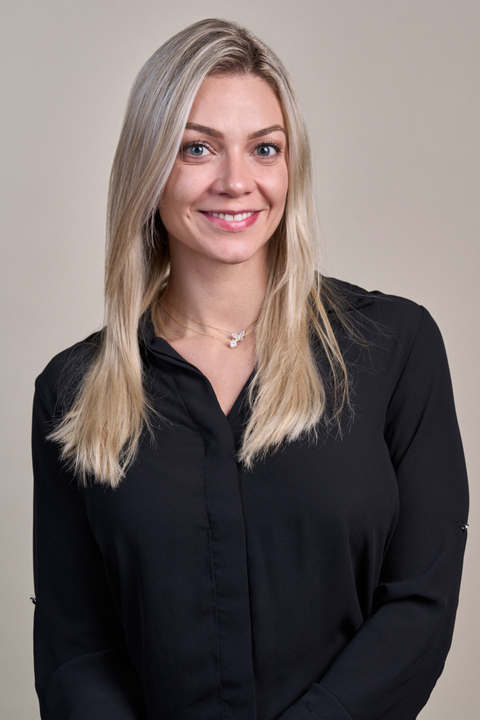
CAMILA MATHENY
EXECUTIVE DIRECTOR, DCT OFFERINGS
An expert in clinical trial operations, Camila works closely with pharma, biotech, and CRO customers to articulate the value of adopting and implementing digital technologies to deliver decentralized and hybrid clinical trials. As a member of the SCDM eSource Consortium, DTRA, and EFGCP, Camila leads with data, the driving force behind bringing new therapies to market. With over 15 years of clinical trials experience, a background in data management, and a passion for the latest cutting-edge technologies, Camila provides a unique combination of expertise to help guide customers towards a better way to adopt and implement technologies the most impactful and sustainable way.

ANDREW MACKINNON
VP, GM, ECONSENT
As General Manager for eConsent, Andrew Mackinnon oversees the development of the eConsent product, as well as the implementation of eConsent in Medable studies, ensuring that Medable’s clients can run high quality, effective and efficient decentralized clinical trials. Andrew has 20 years of experience in managing clinical trials at large Pharma, Biotech and CRO companies, most recently as a Senior Director in one of Covance’s therapeutic area delivery groups and as Head of Business Performance. From his involvement in one of the earliest deployments of decentralized methodologies, he has been passionate about the benefits that this approach can bring in reducing the burden of clinical research on both sites and patients and looks to leverage his broad operational expertise to improve how this approach is utilized.
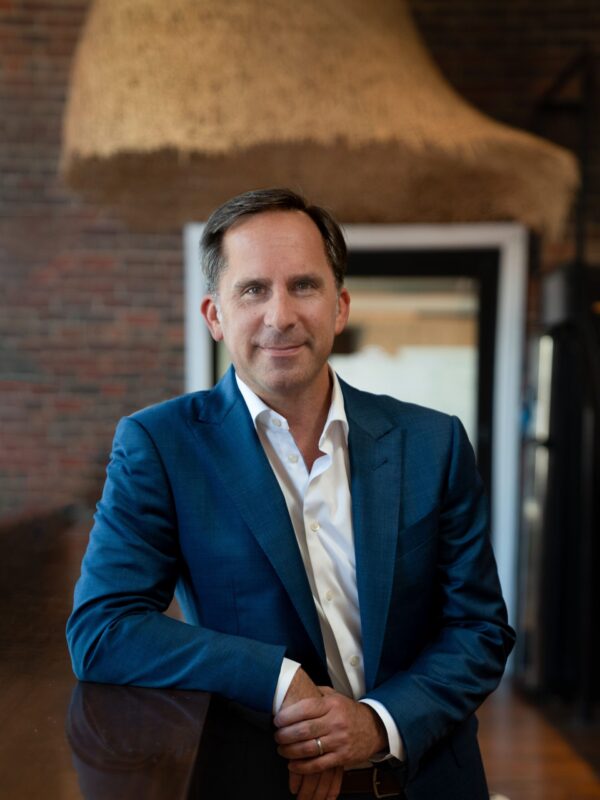
KEVIN ANISKOVICH
PRESIDENT & CEO, JUMO HEALTH
Kevin is the President and Chief Executive Officer of Jumo Health. In this capacity, Kevin is responsible for the strategic direction of the organization, playing primary roles in product development and global market positioning.
A serial entrepreneur, Kevin’s career in health care started when his mother was diagnosed with a rare disease and faced a dearth of understandable information about her diagnosis and care. Having most recently served on the market research side as President of Great Blue Research, Kevin was previously the Chief Innovation Officer of Sharecare, responsible for product strategy and operations of its service offerings directed to healthcare professionals and institutions.
Prior to joining Sharecare, Kevin was the Chief Innovation Officer of Remedy Health Media, responsible for strategic planning and product development for its digital assets. Kevin joined Remedy as part of its acquisition of Intelecare Compliance Solutions, a company Kevin founded and led as its Chief Executive Officer. At Intelecare, Kevin developed a proprietary multi-channel communication platform that provided compliance reminders along integrated mail order pharmacy services – a first of its kind.
Prior to founding Intelecare, Kevin held senior level sales and marketing positions for Epocrates, the market leader in clinical information and decision support tools for health care professionals, and co-founded HealthInfo Corp., a producer of patient education and continuing medical education videos. Kevin’s 25+ years of experience in health care has covered marketing, technology and sales.
Among other recognitions, Kevin was named one of PharmaVoice Magazine’s Top 100 Most Inspiring People in Life Sciences and has led Jumo Health to be recognized on the Inc. 5000 list as one of the fastest growing private companies for the last two consecutive years.


